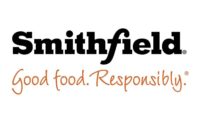For the grocery industry, 2025 will bring some necessary shifts in strategy based on the changing needs of consumers, says John Clear of Alvarez & Marsal’s Consumer and Retail Group.
Clear serves as senior director with the Consumer and Retail Group of Alvarez & Marsal, a global professional services firm. "Failing to take the consumer into account will lead to a quicker demise for grocers taking a 'more is better' approach," Clear says.
2025: The year of private brands
"I predict that in the coming year, private brands will become a merchandising mainstay, an essential part of US grocery strategy," Clear says.
Private-label market penetration in the US is nearing 25%, marking a shift from being a niche value play to a mainstream category.
"Retailers like Sprouts and Aldi are leading this trend with innovative private-label strategies," he says. "The prominence of private label has been driven by changes in consumer behavior over the last couple of years. This shift will have some impact on production requirements downstream, but also on CPGs and their approach to the market upstream. We’re likely to see creative approaches such as partnering with CPG manufacturers to produce private label goods alongside national brands."
Mid-market fallout from the Kroger-Albertsons merger
With growth at the high and low ends of the market, squeezed traditional mid-market grocers will continue to stagnate or decline, Clear says.
"The middle will lose even more market share this year than they have recently — further exacerbated this coming year, because the middle, which was counting on a shot in the arm from Kroger and Albertsons becoming one big company, are now facing big players like Walmart and Costco that keep taking share on one end, and specialty outlets like Sprouts, Trader Joe’s and the Fresh Market grabbing share on the other," he says. "The nontraditional grocers — discount, mass retailers, etc. — will keep the market going forward, while mid-market grocers struggle to better understand customer behavior."
The days of big-scale mergers are behind us
But expect a lot of activity on small-scale mergers and acquisitions, Clear says.
"In southeast Florida, regional grocers, particularly regional legacy brands, are the most under pressure from the likes of Walmart, Costo, Aldi and Trader Joe’s," he says. "Regional M&A could happen almost anywhere across the country. Either a grocer is performing well, like a Kroger, or not as well and will need to save themselves. I would expect Kroger to push ahead with some regional acquisition and Albertsons to divest of some regional brands. In other regions, look for companies like Schnuck’s or SpartanNash to pursue an acquisition. Mid-level will be looking to consolidate or merge. This has been delayed from happening so far because people had been waiting to assess the fallout from Kroger-Albertsons — now that that’s in the rearview mirror, some of the rest of the market will free up in the new year."






